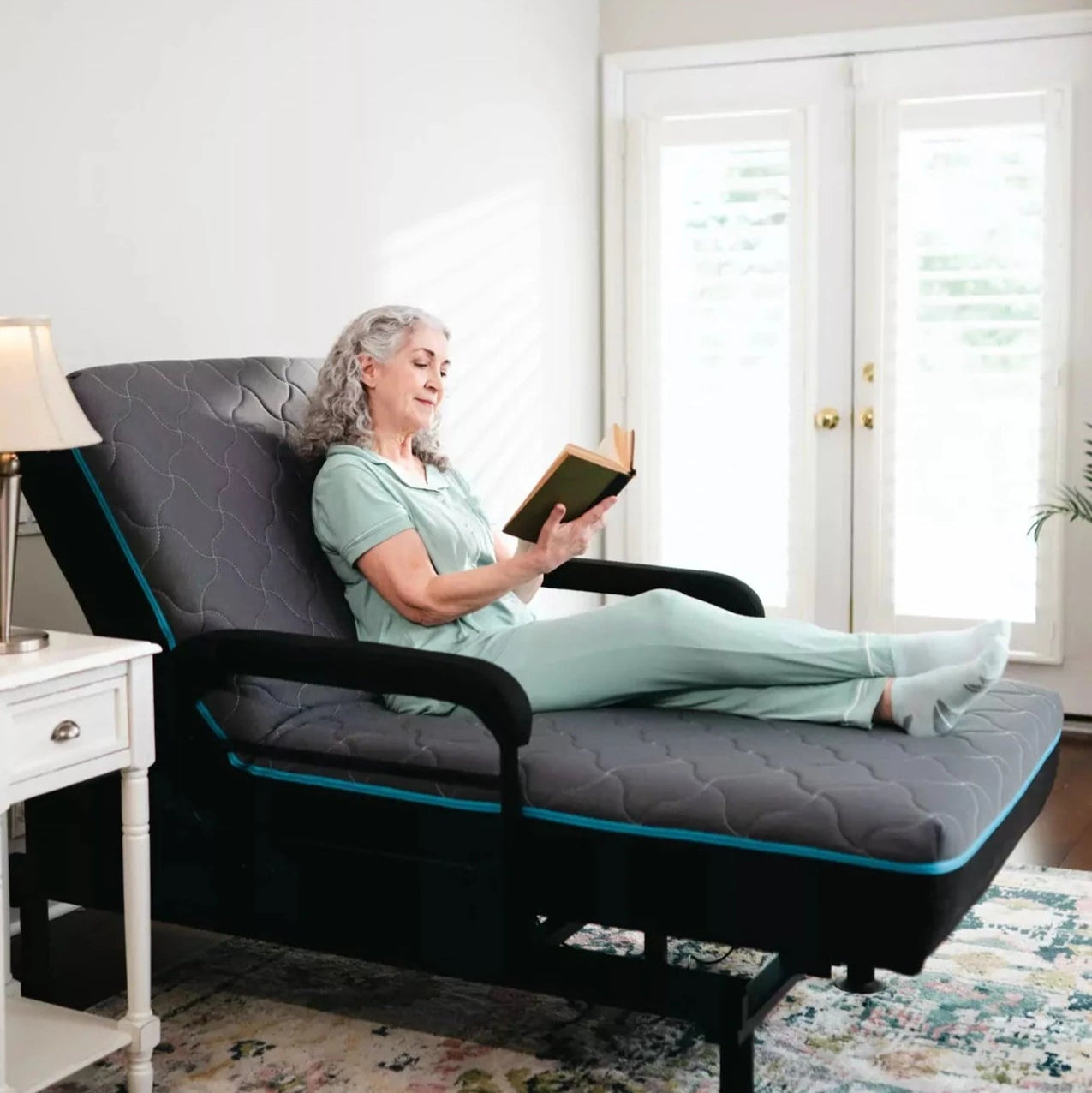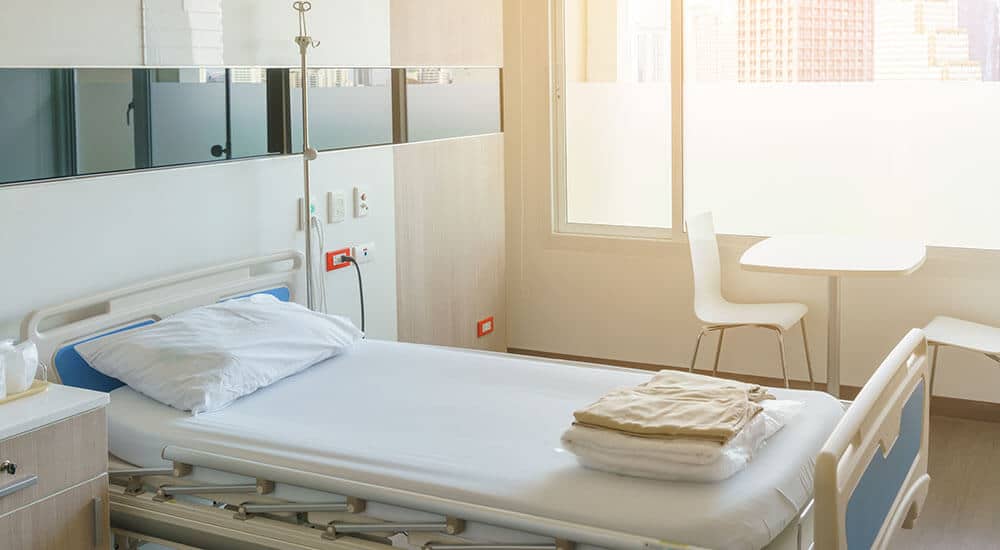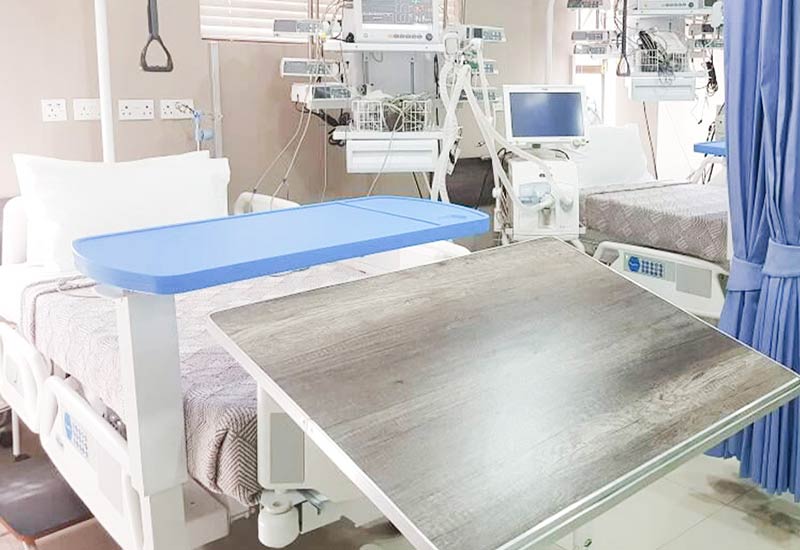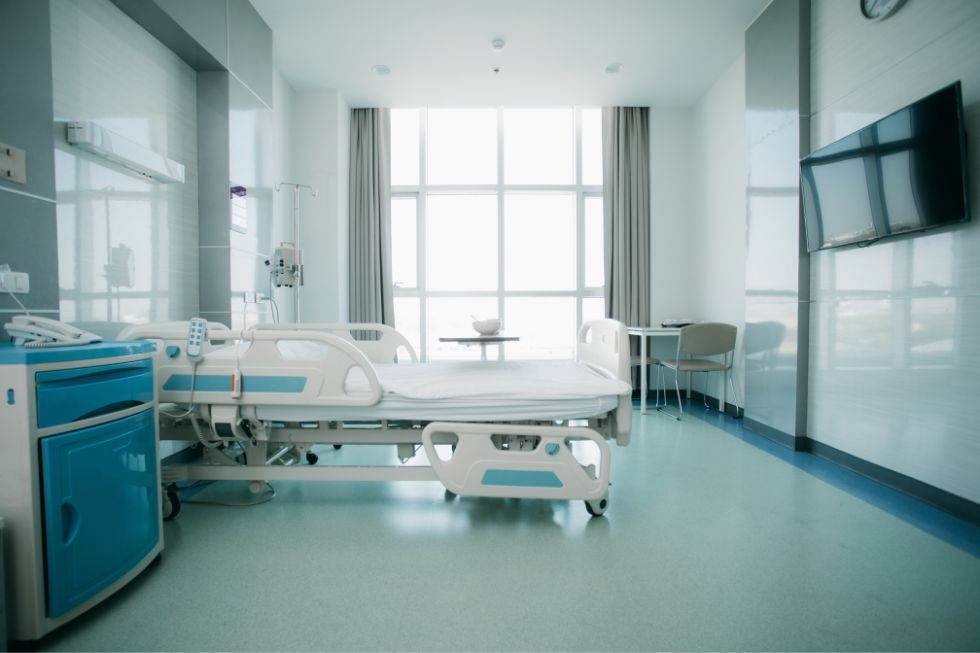See This Report about Hospital Beds For Home Use
Table of ContentsHospital Beds For Home Use Fundamentals ExplainedHospital Beds For Home Use - QuestionsFacts About Hospital Beds For Home Use Revealed9 Easy Facts About Hospital Beds For Home Use ShownThe Ultimate Guide To Hospital Beds For Home UseNot known Details About Hospital Beds For Home Use Hospital Beds For Home Use - Truths
There are three main kinds of hospital beds: handbook, semi-electric, and fully-electric. These beds use hand cranks to readjust the bed's elevation and raise and reduce the head and the foot.
Semi-electric beds have an electric motor to raise and decrease the head and foot sections of the bed. Clients and caretakers readjust the positioning by pressing buttons using a hand pendant. The height of the bed is readjusted manually with a hand crank. Full-electric beds have an electric motor that can increase the head and foot sections of the bed along with the entire elevation and positioning of the bed.
Hospital Beds For Home Use for Dummies
There are a number of types of hospital beds, each created to meet specific individual demands. Right here are some usual kinds: This is the most usual kind of medical facility bed, made for general medical usage.
Lower to the ground than a standard bed. This type of bed is designed for bigger patients, with a larger framework and higher weight capacity than a common bed.
This kind of bed is made for critically sick individuals who call for open surveillance and specialized medical devices such as ventilators and mixture pumps. This type of bed is designed for use during labor and shipment, with adjustable settings and features to support the mom and infant during the birth process.
The Ultimate Guide To Hospital Beds For Home Use
Multiple function and the accessories do broadening traction to various parts of the vertebra and the extremities without moving the body. These are just a few instances of the kinds of health center beds readily available. The specific kind of bed utilized will certainly depend upon the client's condition, medical demands, and various other aspects.
Below is things you need to know. A one-function hospital bed is a clinical bed that enables a patient to relocate just the head or foot section up or down. A 2 feature hospital bed generally describes a kind of medical bed that has 2 adjustable features to aid people in health centers or care facilities.

9 Easy Facts About Hospital Beds For Home Use Described
A 7-function ICU bed is a kind of clinical bed that supplies a number of flexible features to sustain seriously ill clients in a critical care unit (ICU) (hospital beds for home use). The 7 features normally include: Back-rest modification: The backrest can be gotten used to numerous angles to aid the person sit up or lie down easily
Elevation change: The bed can be elevated or decreased to make it easier for patients to enter and out of bed, and for caretakers to supply care. Trendelenburg placement: The entire bed can be tilted to promote blood flow and flow in the body. Reverse Trendelenburg position: The bed can also be tilted in the opposite direction to advertise blood circulation and blood circulation in the top body.
While more economical than electric versions, my review here these beds call for exertion for modifications. The main benefits of manual beds are their affordability and integrity, as they don't count on electricity. Nonetheless, the requirement for manual effort can be a restriction in circumstances where quick adjustments are required or where caregivers encounter physical difficulties.
Examine This Report on Hospital Beds For Home Use
They are well-suited for patients who need marginal rearranging for convenience or clinical demands. Semi-electric health center beds provide an equilibrium of manual and electric controls. The head and foot sections are generally changed with electrical controls, while the elevation is readjusted manually. These beds supply an ideal middle ground in between guidebook and totally electric choices, supplying ease of use without the full price of electric versions.
Semi-electric beds are fit for individuals that require moderate adjustments to the head and foot areas yet can take care of without regular height changes. This makes them an economical option for those seeking convenience and ease without the demand for consistent repositioning. Totally electrical health center beds include electrical controls for smooth changes to the elevation, head, and foot sections.
Specialty healthcare facility beds, such as ICU beds, long-lasting treatment beds, and bariatric beds, are meticulously developed to deal with particular medical requirements. These beds use tailored treatment for diverse individual groups, improving both end results and comfort. In the following areas, we will certainly discover the primary kinds of specialized healthcare facility beds, describing their particular advantages and applications.
With years of experience in manufacturing electrical linear actuators - hospital beds for home use and close cooperation with the health care sector, TiMOTION is well-positioned to offer reputable healthcare options. Our up and down integrated firm handles every action of the production process, from layout to actuator assembly, ensuring we deliver remarkable worth and personalized remedies tailored to your certain needs
The Buzz on Hospital Beds For Home Use

To discover even more about integrating these technologies right into your items, call us today. More analysis:.
Data is sourced from the Medicare Expense Record. Accessed January 2025. Short-term intense care hospitals have the highest typical number of beds at 187. They are the most common type of health center in the U.S. and make up greater than 50% of united state medical facilities. important source Children's hospitals have 178 beds generally and VA health centers average 175 beds.

Not known Details About Hospital Beds For Home Use
A hospital bed is a bed developed specifically for clinical functions. It is not just an area for individuals to rest, but also a platform for clinical procedures. Unlike common home beds, healthcare facility beds usually have flexible functions, which can promote clinical personnel to make various changes according to the requirements of patients, such as altering the height, disposition, and assistance angle of the back and legs of the bed.